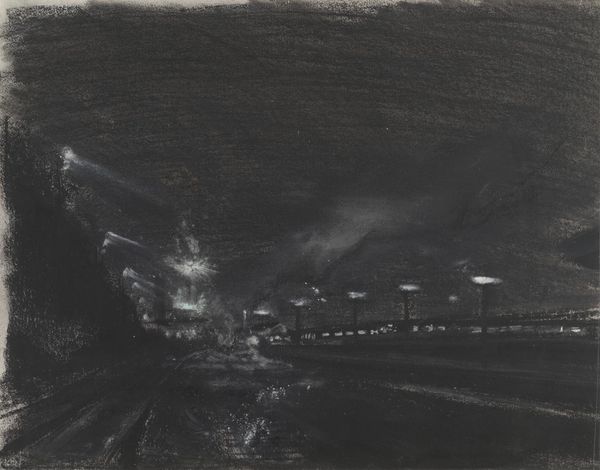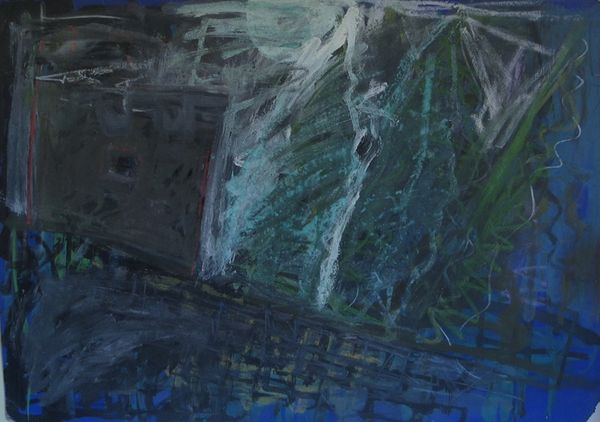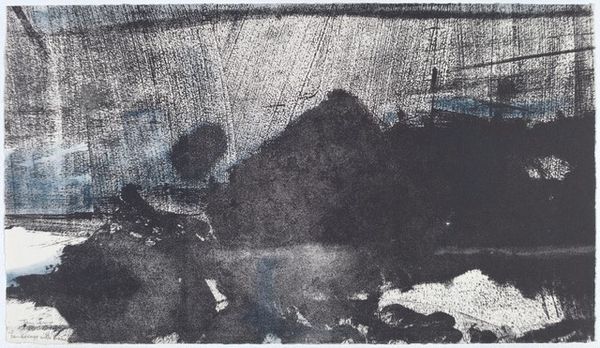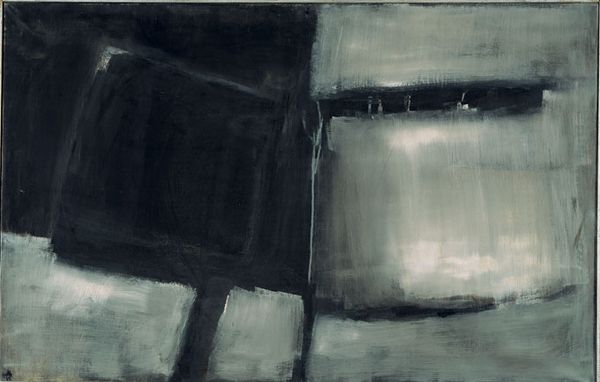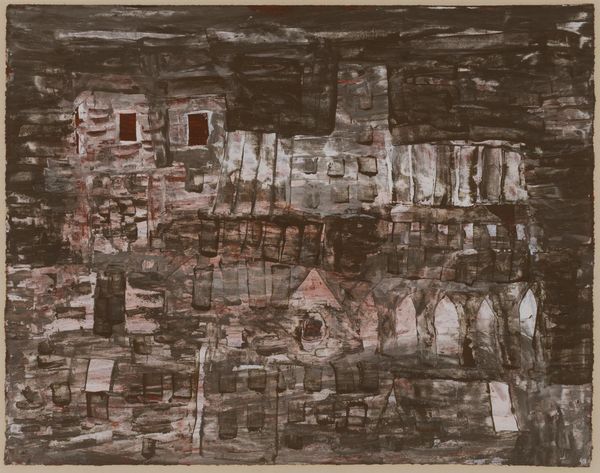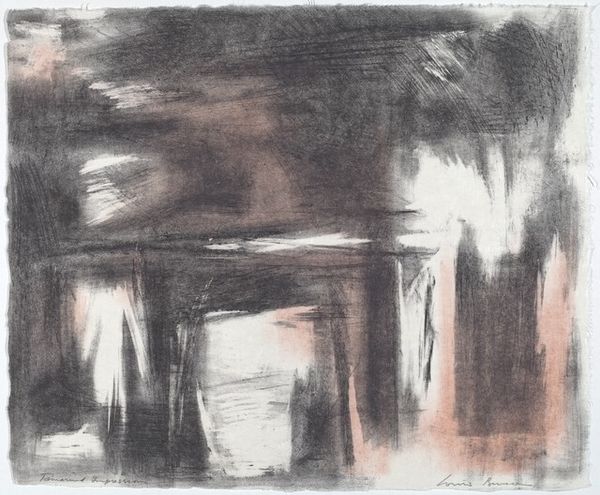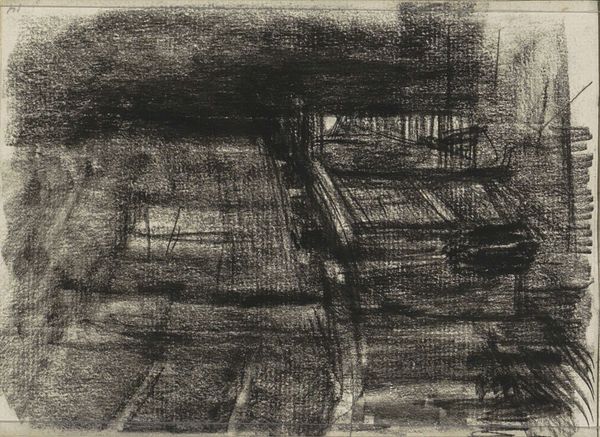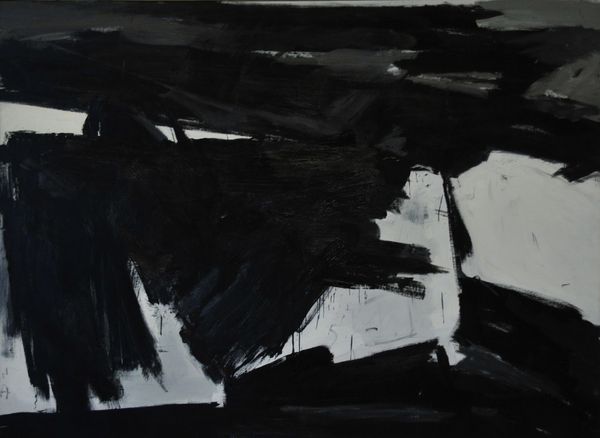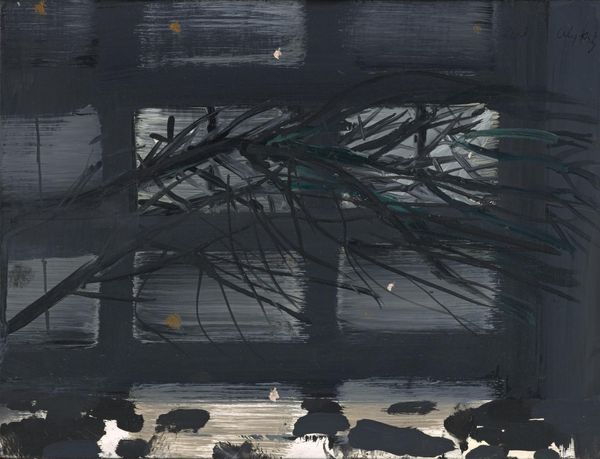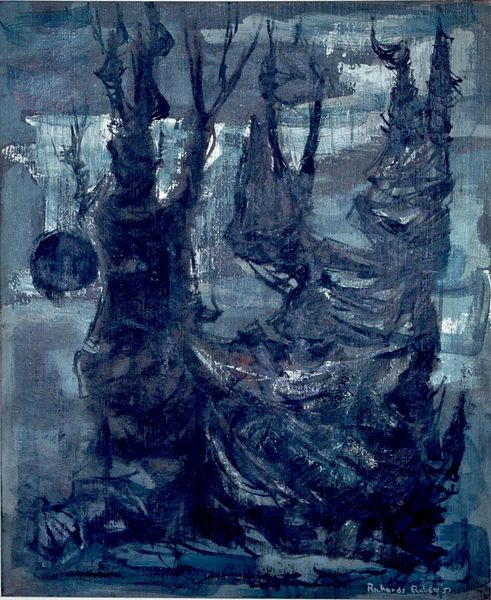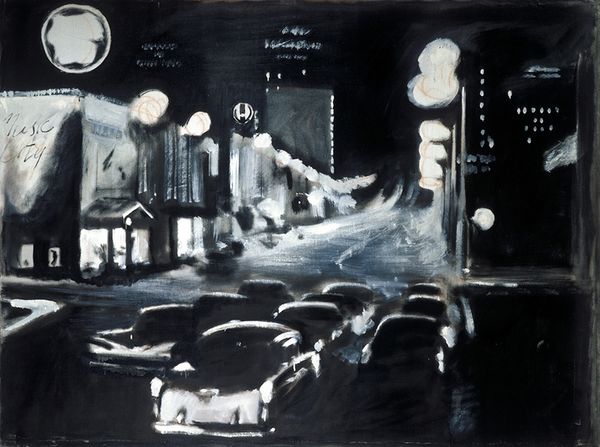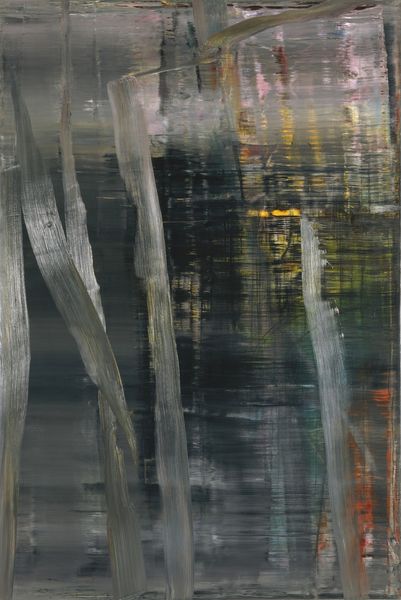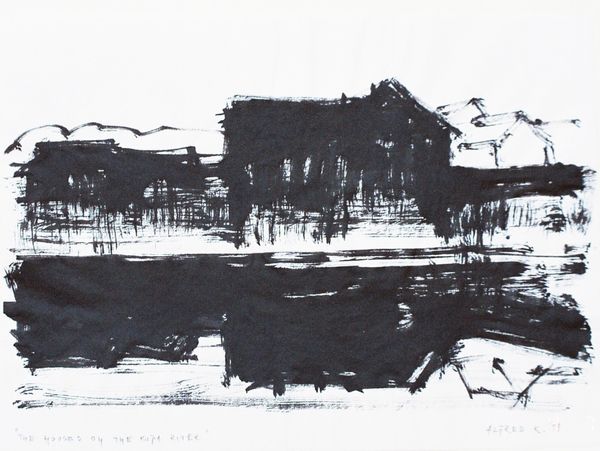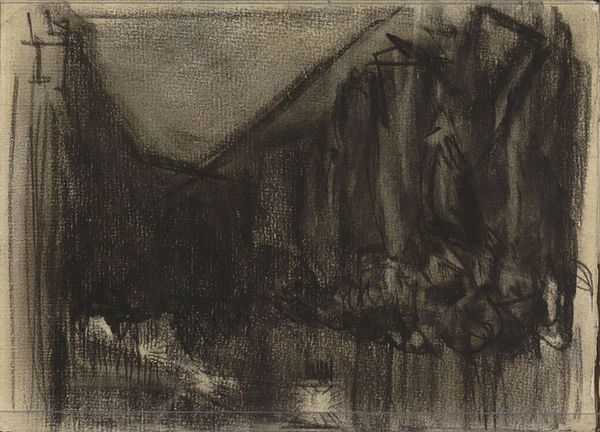
Dimensions: 30 x 40 cm
Copyright: Creative Commons NonCommercial
Curator: Alfred Freddy Krupa's "Night on the River Kupa," painted in 2012 using acrylics, is our focus. Editor: Oof, that’s dark. It feels like peering into the abyss – beautiful, but a little intimidating. A midnight swim kind of vibe, you know? Curator: Exactly! It masterfully captures that feeling. Krupa's expressionistic style reduces the city to mere flickers of light, abstracting the experience of the place. This aligns it with broader trends in representing urban spaces, away from grand vistas towards emotional responses. Editor: And the rough brushstrokes add to that frantic energy, like the water's shimmering surface is trying to escape the darkness. I keep wanting to smooth it out with my finger but, in doing that, you’d destroy the entire thing. What could have made Krupa embrace this approach? Was he exploring other ways that painting could become visceral or emotionally powerful? Curator: His connection to the avant-garde "New European Painting" movement after the millennium played a key role. It questioned painting’s societal relevance but simultaneously revitalized its potential, particularly as a means of expressing inner experience against a rapidly changing political background after the Cold War. The cityscape then becomes almost secondary. Editor: Right, the actual 'place' blurs, doesn’t it? It feels like *any* industrialized waterside could be seen this way, which then echoes those neo-expressionist sentiments. Curator: Precisely. These aren't simple landscape paintings. The dark palette emphasizes a more critical vision of post-industrial spaces and perhaps anxieties about global change, rendered intimately through his signature abstract style. Editor: Knowing all that… makes you want to sit with it, doesn’t it? This small picture does something big. What I originally perceived as 'darkness' reads now like resistance or critical observation that you really have to lean into to understand. It's much more nuanced. Curator: And there's always something fascinating about viewing how broader cultural and historical events are filtered through an individual artistic perspective.
Comments
No comments
Be the first to comment and join the conversation on the ultimate creative platform.
